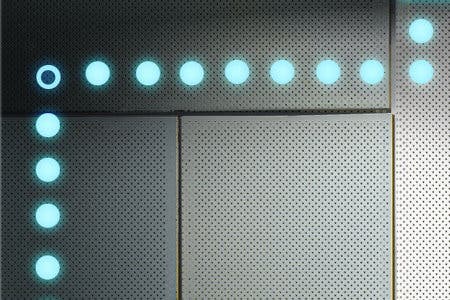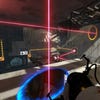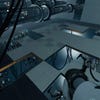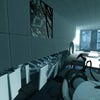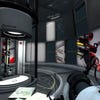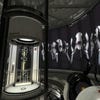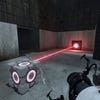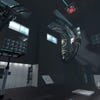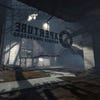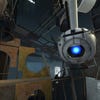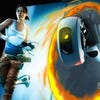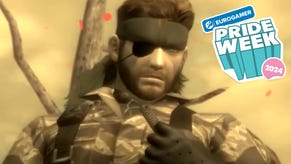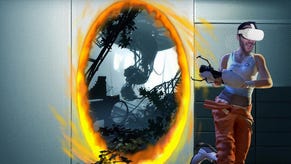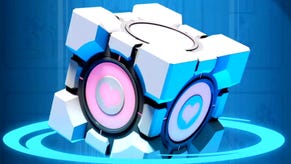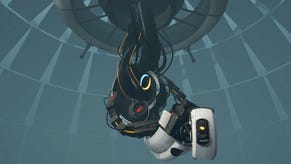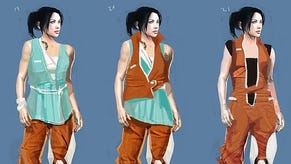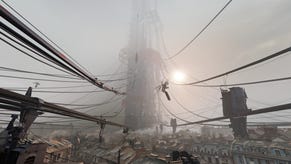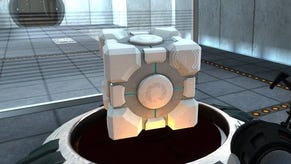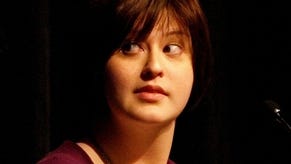Eurogamer's Game of the Year 2011
Hole in one.
Was 2011 a great year for gaming or wasn't it? Regardless of where you stand on that particular debate, it's been responsible for some of the medium's finest efforts. Going through our Games of 2011 has provided some heartening reading, and the likes of Bastion, Quarrel and Clash of Heroes HD go to show that when it comes to "Actual New Games" we've had our fair share over the last 12 months.
But it's the sequels and new instalments in long-running series that have, perhaps predictably, taken the limelight, and they've presented fascinating insights into how different developers approach the sometimes sticky business of iteration. Eidos Montreal pulled off a commendable balancing act with Deus Ex: Human Revolution, managing to replicate the 1999 original while offering an entirely new vision, while Nintendo once again revived and renewed its two most well-worn mascots with the dizzying one-two punch of Super Mario 3D Land and Skyward Sword.
Elsewhere, Dark Souls spread the punishing formula of its predecessor over a wider, more intricate world - and Skyrim trumped its own forebears by creating the most sumptuous and expansive world that the Elder Scrolls have ever unfurled in.
But our own game of the year was the only one blunt enough to carry its sequel status on its sleeve - though the game in question was bold enough to tinker with the very idea of what a sequel can be. And it had to really - what emerged from the test chambers the first time around flew close to perfection, a brilliantly judged and refreshingly small slice of first-person puzzling. Following that up felt like madness, but the result was a giddy and intoxicating madness that was the work of an undoubtedly special developer.
And so, for the third time in the 12-year history of Eurogamer, the honours go to Valve for Portal 2, our Game of the Year 2011.
The Courtesy Call
Tom Bramwell made the step up to become Eurogamer's operations director this year, but that didn't stop him from reviewing the likes of Rage, Deus Ex: Human Revolution and Need for Speed: The Run. Because it can't be fun times every day.
"When I look back at this year, the thing I can't help but fixate upon is that some of the magic has disappeared from gaming," says Tom, "Less than a decade ago, Half-Life 2 was able to introduce revelatory new graphics, physics, AI and narrative (remember the scene where you play catch with Dog?) all in the space of one game. These days, I rarely get the same feeling of staring at a new dawn as I once did peering across the oppressive landscape of City 17. Inventing new genres and revolutionising existing ones has grown so much harder that few have the budget or talent for it.
"There are a few exceptions, however, and Valve is perhaps the most obvious and - thanks to Steam - likely to be the most enduring. One of perhaps only two massive studios to Never Make A Bad Game (the other one is Blizzard), the Seattle developer hasn't released anything with quite the same impact as Half-Life 2 since 2004, but it has gotten better at what it does with every release, whether that was telling a story in Portal, making a competitive game entertaining for everyone in Team Fortress 2 or getting complete strangers to have enormous fun working together in Left 4 Dead.
"Portal 2 is almost boringly brilliant at times. It tells a story with a clear beginning, middle and end, it makes you angry and happy and sad and it makes you laugh out loud, it conveys increasingly complex gameplay ideas without confusing you, and of course you never look the wrong way. What I particularly like about it though is that it tells you pretty much everything you could want to know about the Portal facility and its history, but it remains mysterious and interesting beyond its magnificent final sequences. (And I haven't even tried the co-op, which is supposedly amazing).
"When I finished Portal, I remember thinking that it was admirable in that day and age to make a game that wasn't designed to be a multi-game series or, ugh, a "franchise". It was a complete game. It seems weird to say it about a sequel that seemed so unnecessary until around a year ago, but Portal 2 is much the same. The great thing that both situations have in common is that you know, should Valve one day return to Aperture Science, it will be worth the wait. Portal and Portal 2 are the first games in the same series to both claim Eurogamer's Game of the Year, but I doubt they will be the last games made by this wonderful developer to do so."
The Return
Christian Donlan is engaged in a vicious duel to the death with Simon Parkin for the title of 'nicest man in videogames', yet he still finds time to write lovely things about games such as Super Mario 3D Land and Animal Crossing.
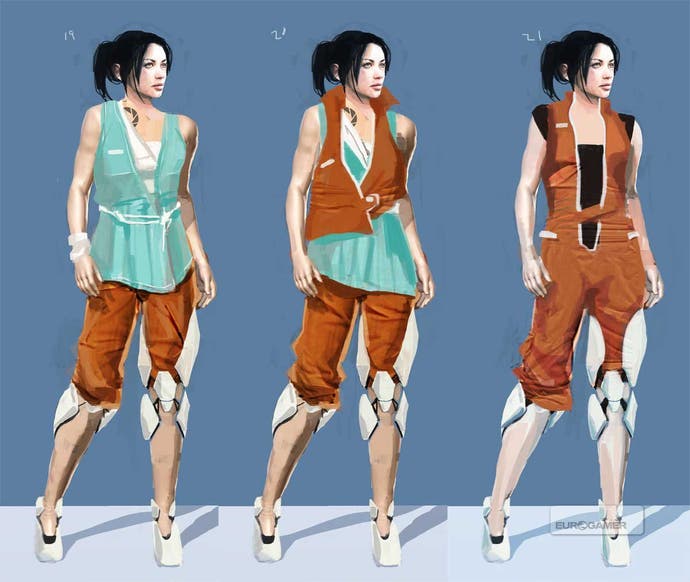
"The puzzles were great," snarls Christian, "but I mainly love Portal 2 because of Aperture Science, a place where hubris has brought brilliant men to their knees, and corporate euphemism has evolved into something truly ghastly. Vast, echoing, and capable of endlessly resculpting itself, it's a weirdly convincing glimpse into a post-human future: part CERN installation, part nuclear bunker, and part Ikea warehouse. It has the best Really Big Doors I've ever seen in a game, and its air of expensive desolation seems like a good fit for a world still reeling from the bizarre collapse of the bond market.
"I read Michael Lewis's excellent book The Big Short recently, which explores the insane and cynical decisions that led to the financial crisis, and the characters and the terminology all reminded me of Aperture Science. If anybody's ever going to make a great game about mortgage-backed securities and credit default swaps, it's probably going to be Valve. And it's probably going to have GLaDOS in it."
The Itch
Oli Welsh is Eurogamer's reviews editor, and when he's not busy hammering the '8' button on his keyboard he's writing about such as Blizzard or Zelda.
"I laughed," laughed Oli, "I laughed at the self-aware, silly wit of "Press Space to Speak". I laughed at the balletic, multidimensional slapstick set-pieces of co-op. I laughed when I followed a tangled thread of logic through to a spectacular stunt, like dropping a river of goo from the sky by switching off a tractor beam - amazed and gleeful at the wordless cunning the designers had shared with me. I laughed at the squabbling voices in my head and the animated tics of the psychotic robotics. I laughed at the moon.
"I laughed because I was really enjoying myself. The original game was an ascetic taskmaster, but this long and loving sequel reinvented itself as the consummate great entertainer. There were more intricate, expansive, innovative or all-consuming games this year. There were even more sophisticated ones. But I don't think any others, not even the great Nintendo comebacks, dared to be this much fun."
The Reunion
Simon Parkin is most probably better at Street Fighter than you. He's also quite good at unearthing fascinating untold stories in gaming.
"It's gaming's oldest trick: the mute protagonist, allowing us to project our own thoughts, words and humanity onto the blank slate avatar," says Simon, "But Portal 2's silent heroine Chell invites us to identify with her in deeper ways. She is the white-collar worker in all of us, awakened to the corrupt, abusive system in which she operates in the first Portal, before raging against that machine in this sequel.
"That her weaponry is wits, not bullets, places her closer to us still. She relates to our menial desk jobs better than any Gordon Freeman or Master Chief ever could. Those armoured warriors are metaphors for our night fantasies, gung-ho heroes who shoot first and ask questions never, thoughtless yet cathartic lightening rods for our daily frustrations.
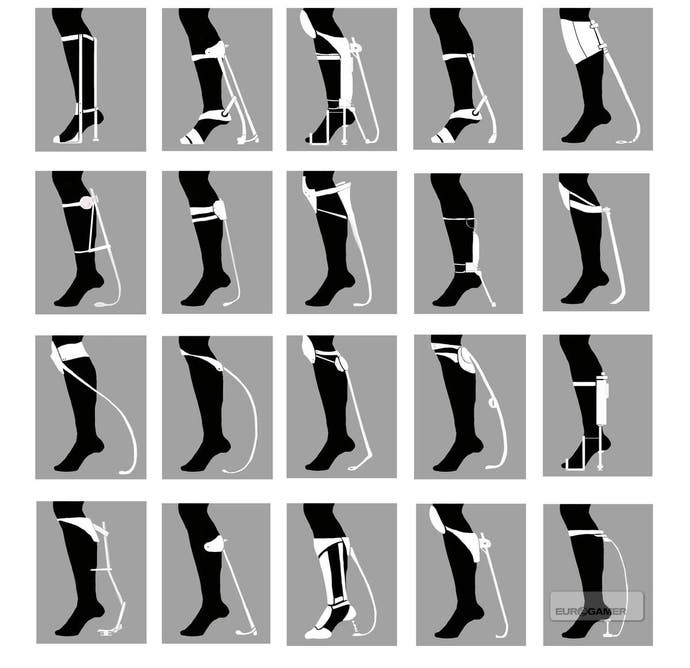
"Chell, meanwhile, is our daytime fantasy, sticking it to the man with silent, determined quick-wittedness, watching the perverse system crash down about her as she prods at it, not content till the entire corrupt operation has been sucked into space, the void where it belongs.
"Fitting, perhaps, that Portal 2 should be game of the year in which the financial systems of our world collapse about us, silent Guy Fawkes protestors staging sit-ins as the GlaDOS's of our world lurk unseen. Portal 2 is a comedy, for sure, but it is a black one. Wheatley and GLaDOS are two sides of the same, inhumane system, wooing us with their empty promises and cheeky witticisms like so many bank adverts. But beneath the jokes and smiles, these are monsters that want to destroy us. We understand that now.
"Chell allows us to turn the tables, not with guns or flames, but with portals that allow us to turn the system's anger against itself, deflecting it away from us to its point of dastardly origin. In that way, Portal 2's catharsis (and what is a video game if not catharsis written in zeroes and ones) is so much deeper and more satisfying than the adolescent rage of so many first person shooters.
The writing is smarter than any other video game, and the puzzles enjoy a clockwork wonder that allows us all to feel special, smart. But Portal 2's true appeal is in allowing us all to take down our personal Aperture Science Labs, to taste the justice that we all crave. In this way, Portal 2 occupied 2012's hearts more than any other."
The Escape
Kristan Reed created numerous different personas so he could vote for Dark Souls over a thousand times as we rounded-up our games of 2011. Martin voted for Portal 2 a thousand and one times. Sorry Kristan.
"When you've spent most of your year wading hip deep in hundreds of indie downloads or trying to provoke your own mental demise in the bleak depths of Dark Soul, it's tough to find time to play much else," writes Kristan.
"But it would have be akin to prolonged self-harm to deny oneself the velvety goodness offered by a few days in the company of the spring fresh Portal 2. When games emerge with unceasing creativity, it's actually quite depressing in its own way, because it sets the kind of standard that few things can ever live up to.
"From the moment Stephen Merchant's rascally West Country tones cajole you to your senses inside a bland hotel room, there's a dark playfulness to Portal 2 that never lets you off the hook. But more importantly - to my mind - is the proof that games can be witty, crafted, knowing. Portal 2 felt like a clear statement of intent about the kind of quality level that gaming narrative should be attaining, but so rarely does.
"If Merchant's off-the-cuff delivery feels spontaneous, unplanned, lucky, then you're probably on the money. But remember, this is also Valve we're talking about - a developer that frets on and analyses every tiny decision it makes. Nothing went into Portal 2 without a level of care, craft and attention to detail bordering on obsessive, and that's a large part of why it's so unfailingly enjoyable.
"Even when the game's trying to break your brain with indecent puzzle proposals, there's always an elegant solution staring you right in the face. Giving up is never an option. The fact that Valve manages to flesh out an already genius concept in so many surprising directions is also a measure of what we're dealing with here. And who seriously thought the co-op mode would turn out as well as it did? Not me.
"The problem with something this good is that you race to the end because you're loving it so much, and then curse its conclusion in the knowledge that you won't have this much concentrated fun for a long time."
The Surprise
Having reviewed both Battlefield 3 and Modern Warfare 3 for us this year, Dan Whitehead needs a nice quiet lie down.
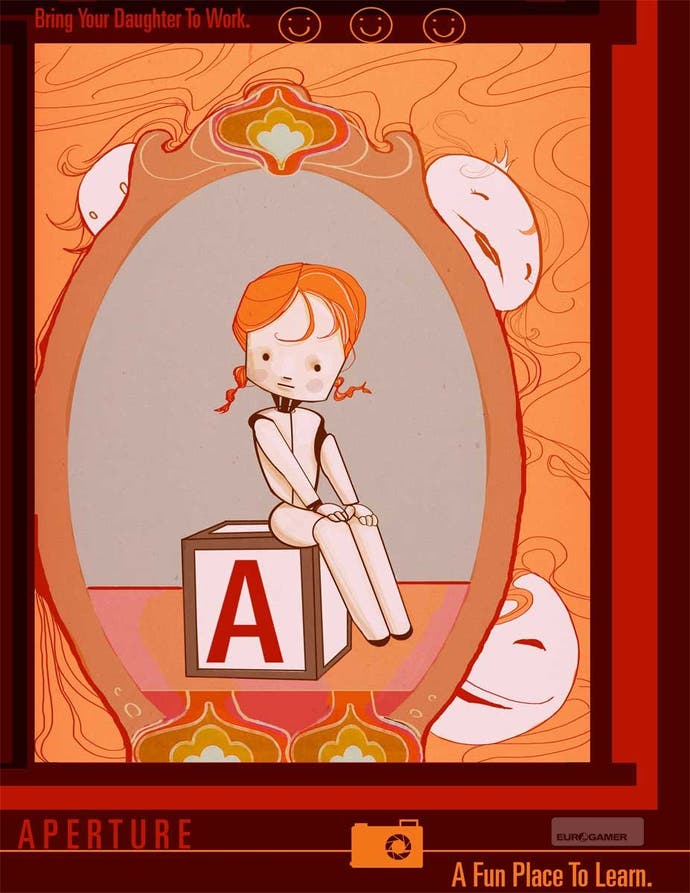
"Portal 2 wasn't my most anticipated title of 2011," Dan recalls, "It was my most dreaded. I loved the first game so much, and yet everything I loved about it was precisely the sort of thing that couldn't work a second time around. Small and perfectly formed, the genius of Portal was inextricably linked to its unassuming nature. In particular, the way the story crept up on you so that by the time you realised you were actually part of a pitch black comedy adventure, you were also three quarters of the way through a superb puzzle game.
"The news that this delicate idea was to be expanded into a longer game, with new abilities, and a robot sidekick, and multiplayer...ugh, it gave me shivers. I wanted to trust Valve, but couldn't see how even one of the greatest studios around could inflate such a beautiful little trinket without making it gaudy and obvious. Shows how much I know. Portal 2 may have lacked the surprise punch of 2007, but it was funnier, smarter and found dozens of ways to fill its playing time without resorting to meaningless padding. And, clearly, that's why Valve actually makes games, while I just blab on about them on the internet."
The Part Where He Kills You
Wesley Yin Poole is Eurogamer's news editor, the man who brought you scoops on the new Kinect and Ueda's Sony departure among countless others.
"It's a s**t version of The Office," says Wes.
